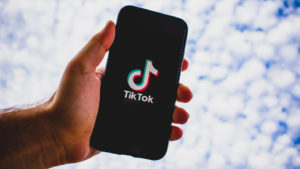Of 5G Trials, Video Calls And Remote Medical Examinations

Telenor, one of the telecoms that operate in Bulgaria, is starting its 5G technology tests.
On Monday was the first in a series of practical 5G tests, which the operator will make across the country in the coming months after it received test spectrum three weeks ago. By the end of the year, the company will assess different use cases and will make various trials and demonstrations to explore the possibilities of this new generation of mobile technology.
The 5G trials will be designed to address precise needs in the areas of production, education, mentoring, the entertainment industry and art. Demonstrations will be performed not only in Sofia but also in other locations across Bulgaria – actually one of the two Huawei stations is mobile. At a different point in time during the next few months, users from different locations would be able to test virtual reality and the streaming of video content and gaming.
“We believe that investing in 5G network development is a strategic step towards the betterment of e-society in Bulgaria,” said Jason King, Telenor’s Chief Executive Officer of Telenor. King further explained that the 5G will provide the foundation for the delivery of new services and business models. This all, however, is in its very early days, and any real applications or deployment of a network are not expected in the next 2-3 years explained King.
A medical examination on the go
During the presentation, three different specialists were connected through the high speed network. Prof. Asen Baltov, Executive Director of “N. I. Pirogov” Hospital, connected to the fixed base stations at the Telenor headquarters in Sofia using a virtual reality headset. His college Dr. Enchev, was in his department at the hospital, using an optical network and another headset. Through the 5G connection Prof. Baltov and Dr. Enchev were able to make an examination of a patient, who was at the time in an ambulance in Haskovo, connected to a mobile base station.
“Thanks to this revolutionary technology, access to expert medical help will be easier, even for the patients who are located at places with limited access,” said prof. Baltov.
This probably doesn’t make much sense right now. But the close to zero latency of the transmission of 5G networks could be helpful for remote surgeries in future for instance.
The 5G network in Bulgaria, like in other countries around the world, is using the 4G infrastructure, which is also known as a non-standalone standard. There are still no fully developed and accepted standardization for a complete independent base stations. Such is expected in the upcoming years.
Not there yet
“5G is a revolution for the economy, industry, society, people, ” pointed out Rosen Zhelyazkov, Minister of Transport, Information Technologies and Communications. Zhelyazkov further explained that there are three things that the state needs to do – spectrum allocation, incentives for the reduction of the spectrum tariffs and easing the administrative burden.
Even though the tests are already live, such technology is years away from becoming an accessible service in Bulgaria, and therefore potentially reach mass adoption on the local level. One thing is clear though, the talk about connected IoT devices including autonomous cars and medical devices is gravitating around the 5G.
Read also:
+++EU Turns Against WiFi Standards For Autonomous Cars Opening Doors to 5G+++





























